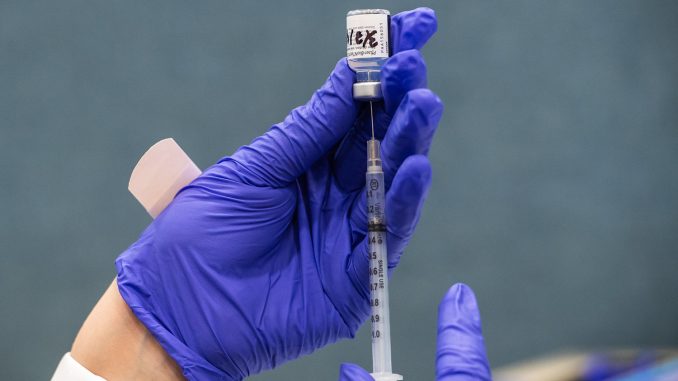
More than a year and a half after the first vaccines against COVID-19 became available, eligibility has been expanded to include the youngest children, from 6 months through 4 years old. The vaccines by both Moderna and Pfizer/BioNTech received emergency approvals from the U.S. Food and Drug Administration and Centers for Disease Control and Prevention and the rollout of the vaccine is expected to begin this week across New York.
On Saturday, CDC Director Rochelle Walensky, M.D., endorsed a recommendation from the Advisory Committee on Immunization Practices, clearing the path for the vaccine eligibility to expand to an additional 20 million children.
The CDC recommends all children, even those who have contracted COVID-19, to be vaccinated.
Distribution is expected to be done at pediatric practices, pharmacies, federally qualified health centers, local health departments, clinics and other locations. Large chains like CVS and Walgreens are preparing for the vaccine. CVS says it is currently awaiting guidance from the CDC and Walgreens is allowing appointments to be scheduled for children ages 3 or older starting Saturday, June 25.
“We know millions of parents and caregivers are eager to get their young children vaccinated, and with today’s decision, they can,” Dr. Walensky said in a statement Saturday. “I encourage parents and caregivers with questions to talk to their doctor, nurse or local pharmacist to learn more about the benefits of vaccinations and the importance of protecting their children by getting them vaccinated.” Children ages 5-11 have been eligible for the vaccine since last fall.
Gov. Kathy Hochul said Saturday that the State Department of Health would finalize operational guidance for vaccination providers this week. State providers outside New York City had already placed preliminary orders for over 39,000 doses, the governor said.
“Parents and guardians, now is the time to reach out to your pediatrician and discuss getting your young children vaccinated over the summer break,” Ms. Hochul said.
The Pfizer vaccine is a three-dose series that “provides young children and infants with a high level of protection,” the company announced. The initial two doses are administered three weeks apart followed by a third dose administered at least eight weeks after the second dose.
The trial was done at a time when omicron was the predominant variant. Several subvariants of omicron have since become the most dominant strain and are more infectious and spread faster than the original SARS-CoV-2 strain that causes COVID-19, according to the CDC. The vaccines for all ages have proved less effective against infection with the latest variants, but still provide protection against serious disease that can lead to hospitalizations and death, health officials say.
“As we have seen with older age groups, we expect that the vaccines for younger children will provide protection from the most severe outcomes of COVID-19, such as hospitalization and death,” said FDA Commissioner Robert Califf, M.D.
Deaths due to complications from COVID-19 remain rare in children. The CDC notes children with underlying medical conditions are more likely to get severe COVID-19, although healthy children can still experience severe illness.
The state DOH has reported 31 fatalities among children ages 0-9. An additional 32 fatalities have been reported from children ages 10-19. The vast majority of fatalities are those 60 or older. The most recent data shows 4,465 Suffolk County residents have died since the pandemic began.
The Moderna vaccine is a two-dose regimen given one month apart and provides protection against COVID-19 two weeks after the second dose, the company said. The most common side effect was injection site pain across all age groups. Other side effects for both vaccines, according to the FDA, have been tiredness, headache, muscle pain, chills, joint pain, swollen underarm lymph nodes in the same arm at the injection, nausea and vomiting and fever.
The vaccines have the same active ingredients as the vaccines given to adults, but with smaller doses that “were rigorously tested and found to create the needed immune response for each age group,” the CDC says.
Children vaccinated early this summer with Moderna’s two-dose regimen can be set up for full protection when returning to school or daycare in the fall. The timeline for the Pfizer vaccine would mean children would be receiving a final dose no earlier than mid-September.

